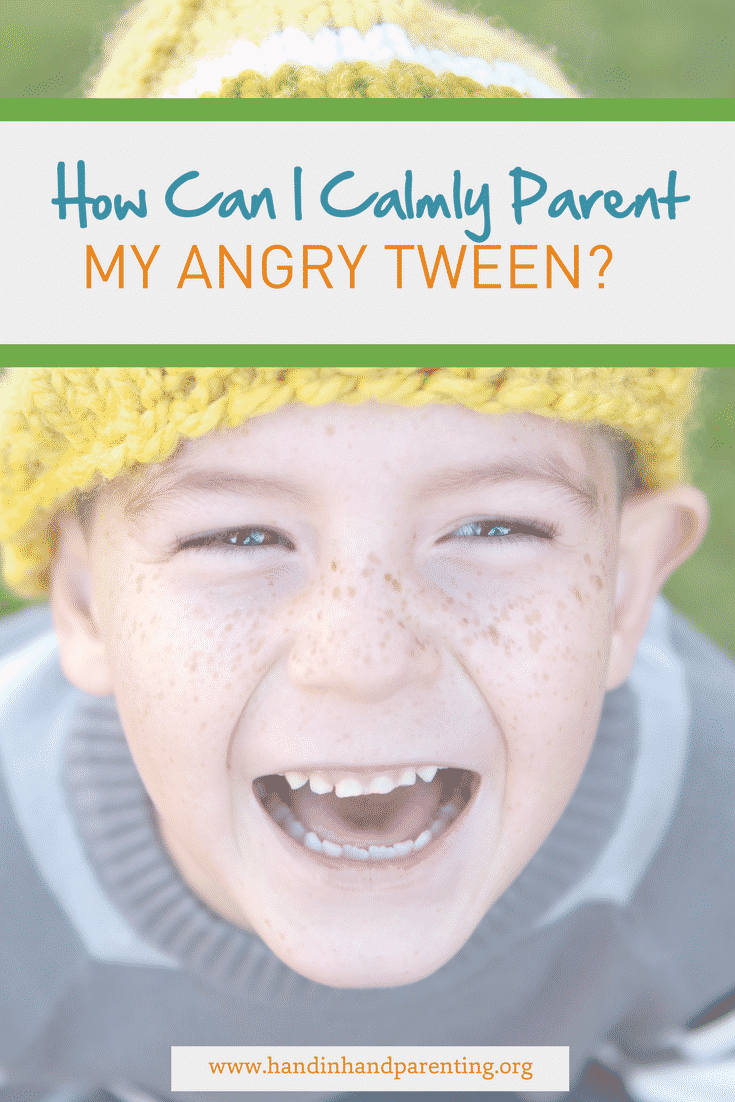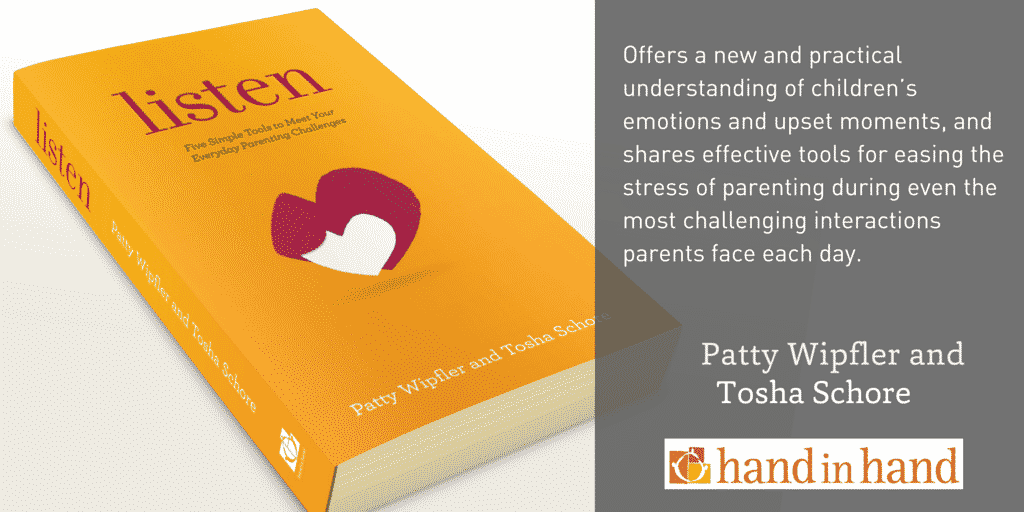 It was time for Karate class but a 9-year-old girl was refusing to go.
It was time for Karate class but a 9-year-old girl was refusing to go.
“Why do you always make me do this stuff,” she yelled, crossing her arms. “You can't make me,” she pouted.
Her mom calmly told her to get her sports bag and that it was time to leave.
The girl angrily stomped down the hall to her room, kicked her bag out of the room, and slammed the door.
All anyone heard next were the shrieks, something heavy hitting a wall, and then, finallly, loud, heaving sobs.
Thought tantrums were over with toddlerhood? Think again.
Children don't get done with tantrums by age four, or 14, or 40 come to think of it, and it's a misconception to think we might grow out of them. At every age, tantrums happen when a person becomes so overwhelmed they can't think straight and emotion takes over.
Karate itself may not have been the problem for this 9-year-old. Tweens are at an age where they are breaking away into independence, and many are more sensitive to what peers and outsiders think of them. Adding flames to this fire are the hormones that are kicking in.
With all of these added pressures, tweens will use their parents – and the limits they set – as something to butt up against. A way to let fly on all the injustices and unfairness they might feel, collect and stuff down until a parent insists on a limit – like going to karate – that allows them to offload.
Should I Be Scared of My Tween's Aggression?
Tween outbursts can be loud. They can be in your face. Physical. They can involve hitting, kicking or throwing things. They can include shouting and loud crying.
And all of this is normal.
As with younger children, we can still use gentle limit setting and staylistening – or listening to a child cry until they are through – instead of punishments, bribes or threats to support tween kids through these tantrums, but as they grow, these tools may need some tweaking.
Keeping Calm Through the Tween Years
We asked Hand in Hand Instructor Keiko Sato-Perry how she navigated some turbulent times when her tweens tantrumed, and how parents can keep calm and connected through the tween years.
Keiko, you have two children. What did you keep in mind parenting them through the tween years?
I believe the top priorities in parenting tweens are still the same as parenting younger children: safety, listening, and connection.
 We talk about setting limits gently with children. How does this work with tweens, they can be so loud!
We talk about setting limits gently with children. How does this work with tweens, they can be so loud!
It may look gentle because your voice is often soft when you are saying no to more screen time, and it may feel gentle because as we aren't snatching the screen away from them, but I don’t think gentle limits mean you always speak softly or gently. It didn't work as well for me in parenting my tween. I found I needed to match myself to my children and to volumes they were familiar with outside our home.
So, did you find yourself shouting at them?
So, for me, when my child was saying, “I don’t want to go to the karate class today!” in a definite tone of voice, I listened and then matched their tone and said, “You don’t want karate today!”
Would you also do this when they were yelling or lashing out?
I got quite creative! I would yell back, but lovingly:
“I love you! You are the most important in my life. I would do anything for you. You need to stop it right now. I can’t let anyone hurt anyone. I love you and I will keep loving you no matter what!”
Become a Problem-Solver, Not a Problem-Fixer
That feels like a great alternative to yelling out of anger when things get heated. How else can parents keep close to their tween? It can feel like tweens want nothing to do with their parents one minute and then the next they are breaking down.
 To listen to tweens, we may need to ask some questions to invite them to show us how they feel, but we shouldn't always expect a coherent answer.
To listen to tweens, we may need to ask some questions to invite them to show us how they feel, but we shouldn't always expect a coherent answer.
For instance, with this idea of not wanting to go to karate, we might say, “There must be a reason for you to say you don’t want to go. I know you like going usually. I wonder why you don't want to this time.”
And then wait. See what unfolds.
Often the act of being heard like this feels very different for a tween. It helps them feel understood and can loosen a little of what's been holding them back.
They may respond in ways that sound like complaining, or whining, or they may all-out shout or cry. Those responses should be welcomed because it shows they are working through their feelings.
(For more on the brains science behind this theory, read: The Science Behind the Hand in Hand Tool of Staylistening)
Then we need to make a decision based on the patterns we have seen. Good questions to ask are:
- Am I in the right mind to set a limit now?
- Can this be a time to let them take a break from a class so we can work on something emotional?
- Is it my child’s pattern of holding back or resistance that may need addressing?
When there is aggression aimed towards other people or objects, focus on keeping safety a priority for both you and your children more than when the tantrum is not aimed towards others.
Look at the Issues Under the Behavior
We see tantrums as a sign that a tween has something to say, some feelings to clear. How can we support that when sometimes the force of the tantrum can be overwhelming and feel quite personal?
In the turmoil of family life, it’s important to understand the bigger context you are all in, especially your child. Ask yourself:
- What is going on for my child in school?
- What is going on in our society that may affect us?
- What is my child exposed to via media?
- What is my relationship with my partner or co-parent?
- Are there health concerns that haven't been addressed.
Chip away at solving some of the problem areas if there are any and then take action. You might put a safety search on the internet, work to make relationships between yourself and the other people in the family feel more secure, or work with teachers about issues at school.
Keep Note of the Changes
How can we know if the effort we are putting in is helpful?
It’s important that we keep noticing what small things may shift in our children after each session of Staylistening.
- Do they talk to us more about little things?
- Do they seem lighter? Do they offer more help?
- Do siblings spend time together harmoniously?
- Do they seem to like us?
- Do they get better at something they could not do?
We can see then that Staylistening is helping to shift some of the feelings. If a child is lighter, follow them in their laughter. Laughing when things are calm and connecting like this is another great way of loosening tension, and, of course, helps you feel closer.
My tween would almost always start joking with me soon after I thought I was at the end of my rope Staylistening to him.
Laugh with your child, making eye contact. This feels like “harvest time” in parenting.
Make a Time-Out Plan When Things Are Calm
 What advice do you have for parents finding it hard to cope with these tween tantrums?
What advice do you have for parents finding it hard to cope with these tween tantrums?
Make a time-out plan ahead of time that outlines what you need. (When we say time out, we mean taking a break, rather than banishing a child). When things are calmer we can let our children know what our time-out plan is for the times things get heated.
Ideas for this include:
“I will take a break and go to the bathroom to talk with a friend when I am too angry.”
“I would love to hear how things are hard for you. I welcome you to keep showing me how you feel. Let’s not throw things anymore.”
Working on what will happen can reinforce a sense of safety, and truly helps you allow for all feelings to be heard when they happen. This is healthy.
Don't Be Scared to make an Apology
And what if we do get embroiled, and end up yelling or losing it ourselves?
If a child is acting out, it puts a lot of strain on the parent and the whole family, but it’s good to know how to work on our less than perfect performance as a parent. It's natural that at times we may get caught in the conflict, we might become angry. But when we say or do things that we regret, we can apologize sincerely to our children when we are both calm.
I have done it in writing or in person. I have also used the time after Special Time to apologize. I have asked what would let them know I am really sorry and did what they asked for.
Set Up Your Coping Strategy
If there are stressful events happening, expect tantrums to come more often and to take a while. It can take a long for a family to shift mode from a dark phase to a lighter one. It’s hard, but it is possible if we parents act as leaders, reaching out for help from organizations, friends and families.
In the search for our support, we are likely to find some people to be more empathic or effective than others and eventually we will find people who can support us well.
Make Use of Your Listening Partners
With Listening Partners, I arranged some systems for tough times.
Have some on call: I could call them up and leave a message or have them speak calmly on a speaker phone to listen to my child and me at the same time.
Create a Code Word: If a friend or a listening partner lives close by, I texted the person “S.O.S.” They would pop in as a guest just to say “Hi.” The presence of a kind person instantly shifted the dynamic or the course of the events.
It's Important to Ready Yourself, Get Strong, Take Risks as a Parent
What other strategies do you have for parents of tweens?
We may not have received the most enthusiastic encouragement to be powerful, strong risk-takers, but that’s something we need to strive for, mentally, emotionally and physically. It’s good and relieving for our children to see us take risks and to be strong and powerful. Our growing like this shows them we can handle their feelings, and it offers a sense of safety for our children to push against even harder.
And we, in turn, as parents know we can take it. We can be the leaders our tween children need.
For more support on raising your tween
Listen to this podcast Talking About Tweens (and their Tantrums) to hear real-life experiences and tools that helped
Get strong! Take care of your mental and emotional well-being with Listening Partnerships: Listen Launch Post: What is a Listening Partnership and Why Do I Need One?
Check out the new class for parents of 9 to 13 year olds, Staying Close to Your Tween.
Get ongoing support and your questions answered in our Facebook Group for parents of Tweens and Older Children
